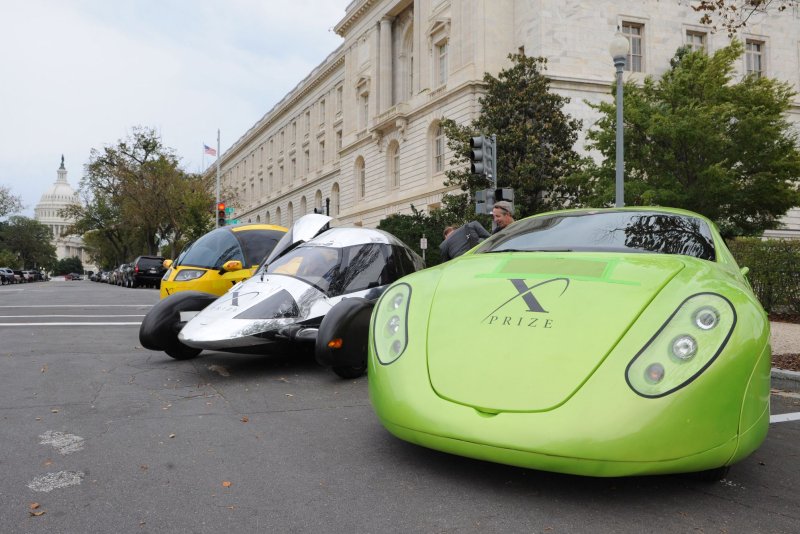Sales of alternative vehicles are still relatively lower compared with conventional vehicles because of the sticker price and the lack of adequate charging infrastructure, a federal report found. File Photo by Kevin Dietsch/UPI |
License Photo
May 22 (UPI) -- Sticker shock and limited infrastructure to support alternative vehicles has limited their sale in the domestic market, a U.S. energy report found.
The U.S. Energy Information Administration reported battery-powered vehicle sales have accelerated the most for alternative vehicles, but accounted for less than 1 percent of total vehicle sales last year. Plug-in hybrids, meanwhile, saw their market share increase from 0.1 percent to 0.5 percent between 2012-17, while sales in non-plug-in hybrids declined from 3 percent to 1.9 percent
"Initial purchase prices for many electrified vehicles remain relatively high, especially for several PHEV [plug-in] and BEV [battery] models, despite federal and state incentives," the EIA reported Tuesday. "Also, in most locations, limited charging infrastructure for plug-in vehicles has hindered wider adoption."
Range anxiety is a lingering concern for those considering alternative vehicles. On sticker price, the Honda Civic, one of the Top 10 sellers in the United States, sells for around $20,000 and boasts 40 miles per gallon on the highway. By comparison, Car & Driver lists the electric model of the Ford Focus with a sticker price of around $30,000 and boasts 99 mpg on the highway.
In April, Japanese energy company Marubeni Corp. said it would work in the U.S. market to deliver ultra-fast charging stations for electric vehicles.
Under the terms of the arrangement, Marubeni said it would collaborate with charging infrastructure company Signet EV to build 340 charging stations in the U.S. market. Charging stations envisioned in the program will be seven times faster than conventional charging stations, though some of that speed would depend on the vehicle.
The U.S. Energy Department's National Renewable Energy Laboratory estimates there are around 40,000 actual plugs available nation-wide for electric vehicles. That number supports the more than 500,000 plug-ins on the road in the United States, which accounts for about a quarter of the global market.
EIA estimated alternative vehicles represented about 4 percent of the market last year, even though the number of available models increased by more than 60 percent.
EIA's report added that relatively low consumer gasoline prices last year meant most people were staying with conventional vehicles. The average retail price for a gallon of gasoline as of Tuesday was up nearly 25 percent from this date last year.















